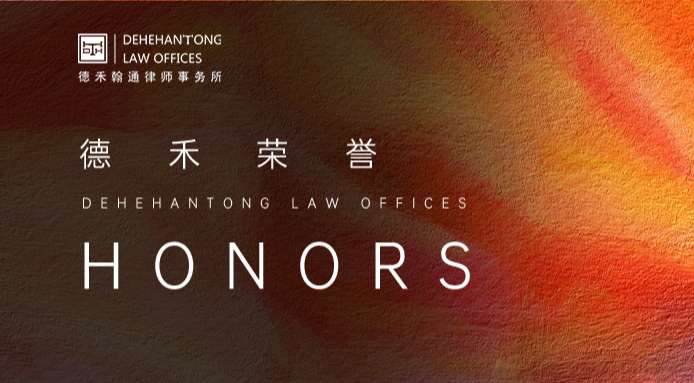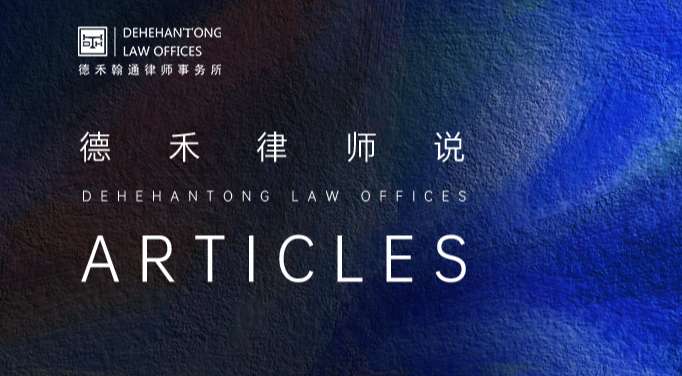Analysis of Typical Cases of Compliance in Private Fund Sales and Investor Rights Protection
Recently, the Shanghai International Economic and Trade Arbitration Commission made a ruling on the private fund sales dispute between Qin XX and HS Asset, determining that HS Asset, due to its lack of fund sales qualifications and illegal promotion, failed to fully fulfill its suitability obligations, and was required to compensate investors for the loss of principal, subscription fees and interest. This case, as a typical example in the field of private equity fund sales, holds significant warning significance for the compliance of managers in conducting business and the protection of investors' rights and interests. This article, in light of the key points of the ruling and relevant legal provisions, conducts an in-depth analysis of the core legal issues and industry risk prevention and control in the sale of private equity funds.
I. Case Review
The dual predicament of illegal sales and liquidation
The dispute in this case originated from the fundraising and redemption dispute of the "GR Investment Plan" private equity fund in 2017. As a non-licensed sales institution (nor the manager of the fund involved in the case), HS Asset promoted a certain fund product to investor Qin XX through its employee Zhao (who has no fund industry qualification), claiming that "GR Securities is expected to go public within one year and achieve a return of 1-2 times." After Qin XX signed the "Partnership Agreement" and paid 2.02 million yuan (including a 20,000 yuan subscription fee), the fund's agreed "exit path through equity transfer" was determined by the court to be unfulfillable due to regulatory policy restrictions. Since the fund entered liquidation in August 2020, it has not completed liquidation for nearly five years, and investors have not received any returns or compensation. The arbitration tribunal ultimately determined that there was a causal relationship between the illegal sale of HS assets and the losses of investors, and supported Qin XX's claims for compensation of principal, subscription fees and interest.
Ii. Analysis of Core Legal Issues
Sales qualification, suitability obligations and loss determination
(1) The "qualification red line" for Private equity fund sales: Legal consequences of selling without qualifications
According to Article 16 and Article 17 of the Interim Measures for the Supervision and Administration of Private Investment Funds, private fund sales institutions are required to assess investors' risk capabilities through methods such as questionnaires and conduct product risk ratings. For entrusted sales, the sales institution must possess the corresponding qualifications.
In this case, HS Assets neither obtained the qualification for fund sales business, nor did its recommended employee Zhao obtain the qualification for fund practice, thus violating the subject qualification requirements for private fund sales. The arbitration tribunal cited Article 2, Paragraph 2 of the "Measures for the Administration of the Raising of Private Investment Funds", which stipulates that "no other institution or individual may engage in the raising activities of private investment funds", and made it clear that the act of selling without qualifications itself constitutes a violation, directly resulting in the tribunal being liable for compensating the losses of investors.
(2) "Substantive performance" of Investor Suitability Obligations: Compliance Boundaries for risk assessment and Disclosure
The obligation of suitability is a core compliance requirement for the sale of private equity funds.
Article 3 of the "Measures for the Appropriateness of Securities and Futures Investors" stipulates that business institutions must "fully understand the situation of investors, fully disclose risks, and put forward clear appropriateness matching opinions."
In this case, although HS Assets submitted documents such as the "Risk Assessment Questionnaire" and the "Risk Disclosure Statement", the following main violations occurred:
The assessment documents were filled out by the sales staff on behalf of the investors. The investors only signed their names and did not actually participate in the risk assessment process.
During the follow-up visit, the investor explicitly questioned, "Was there a loss?" And it was confirmed that "is there a 1-2 times return?", but the salesperson ignored it and did not provide a substantive explanation of the risks.
3. When promoting, the emphasis was one-sided on "1-2 times the return", without fully highlighting the core risks such as "failed listing" and "restricted exit".
The arbitration tribunal thus determined that HS's assets failed to substantially fulfill the suitability obligation, constituting an infringement upon the rights and interests of investors.
(3) Determination of "Actual Losses" in Liquidation Predicaments: The judicial logic of long-term non-liquidation
In response to the defense of HS assets that "the fund assets still have value and there is no actual loss", the arbitration tribunal, in light of Article 577 of the Civil Code which stipulates that "a party who fails to perform its contractual obligations shall bear the liability for compensation", determined that the loss actually occurred from three aspects:
It has been over four and a half years since the fund was liquidated. The respondent has not clearly stated whether the liquidation can continue and the possible time limit for its completion. If the respondent insists that the fund investors can only assert their rights after the liquidation is completed, it would be like looking for fish in a tree, which is obviously unfair to the investors.
2. The agreed exit path (equity transfer) has been determined by the court to be unfeasible due to regulatory policies, and there are no other clear exit methods.
3. Potential exit plans such as the acquisition of XB Securities are uncertain and cannot be used as a basis to deny losses.
The above-mentioned ruling viewpoint breaks through the traditional defense of "no loss before the conclusion of liquidation", emphasizing the substantial damage to investors' rights and interests caused by long-term non-liquidation, and provides a reference for judgment in similar disputes.
Iii. Industry Risk Prevention and Control Guidelines
Two-way suggestions for managers' compliance and investors' rights protection
(1) Key points of compliance for private fund managers and sales institutions
1. Strictly adhere to the bottom line of sales qualifications: Self-sales must complete the registration of the manager with the Asset Management Association of China; When entrusting sales, it is necessary to select institutions that have been registered with the China Securities Regulatory Commission and obtained the qualification for fund sales business. The professional qualifications of the sales personnel should be verified to avoid illegal behaviors such as "private promotion by employees" and "sales by non-licensed institutions".
2. Standardize the suitability management process: Risk assessment must be filled out and confirmed by the investor themselves. It is strictly prohibited to fill it out on behalf of others. Risk disclosure should provide specific explanations for product characteristics (such as liquidity risks of equity investment, uncertainty of listing, etc.), and avoid template-based expressions. During the cooling-off period, follow-up visits should cover core questions such as "whether the risks are understood" and "whether the purchase is voluntary", and retain valid evidence such as audio recordings.
3. Strengthen dynamic management of exit paths: Pre-set multiple exit methods (such as share transfer, third-party acquisition, etc.) in the fund contract, regularly track the underlying assets (such as the listing progress and equity value changes of GR Securities in this case), and promptly disclose exit obstacles and response plans to investors to avoid disputes caused by the failure of a single exit path.
(II) Practical Suggestions for Protecting Investors' Rights and Interests
1. Verify the qualifications of the sales institution: Require the sales institution to present the qualification certificate for fund sales business (which can be verified through the official website of the China Securities Regulatory Commission), confirm the relationship between the sales personnel and the institution, and whether they have the qualification for fund industry (which can be verified through the "Fund Industry Personnel Qualification Registration Information" of the Asset Management Association of China).
2. Sign the risk document carefully: The risk assessment questionnaire should be filled out by yourself; avoid having someone else fill it out. The risk disclosure statement should be read item by item, with a focus on terms such as "possible principal loss" and "Exit restrictions". For ambiguous expressions, sales personnel are required to provide written explanations (at least leaving a trace on wechat).
3. Retain communication evidence: Keep wechat chat records with sales personnel, promotional documents (such as investment prospectuses, product introductions, etc.), follow-up visit recordings, etc. In case of disputes, the above evidence can prove whether the sales institution has made misleading statements.
4. Pay attention to the progress of liquidation: After the fund matures, promptly request the manager to disclose information such as the liquidation plan and the valuation of underlying assets; If the liquidation process remains stagnant for a long time, compensation can be claimed in accordance with Article 577 of the Civil Code to avoid missing the opportunity to protect one's rights due to waiting for the liquidation.
IV. Conclusion
Compliance is the lifeline of financial investment and also a reassurance for investors
The ruling of this case has sent a clear signal: the "qualification red line" for the sale of private equity funds must not be crossed, the obligation of suitability must be fulfilled in a substantive manner, and the losses of investors who have not been liquidated for a long time will be recognized by the judiciary. For managers, compliant sales are not only regulatory requirements but also a "protective charm" to avoid high compensation. For investors, enhancing the ability to identify risks, preserving key evidence, and promptly asserting rights are the core paths to safeguarding their own interests. The author suggests that private fund managers take this case as a warning and improve their compliance systems. Investors need to enhance their legal awareness and jointly promote the compliant and healthy development of the private equity fund market.















